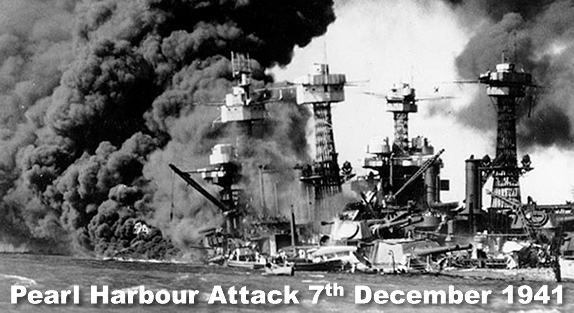Captain Mitsuo Fuchida was more excited than usual as he awoke that morning. As general commander of the air squadron, he made some last-minute checks on intelligence information, then went to warm up his plane.
Three hundred and sixty Japanese planes, led by Captain Fuchida, headed towards Hawaii. He knew the goal of this mission: to surprise and cripple the American naval force in the Pacific.
He left a trail of destruction. Twenty naval vessels were hit, including eight enormous battleships, and over two hundred planes were destroyed. The human cost was terrible: over 2000 military personnel and civilians were killed, and more than 1000 were injured.
Fuchida was the first over the target and the last to leave. It was his voice that sent the aircraft carrier the message ‘Tora! Tora! Tora!’ (‘Tiger! Tiger! Tiger!’); his way of declaring the mission’s success.
This was the same commander who later led the first of two attacks in one day on Darwin. At the end of that day, two hundred and forty-three civilians and servicemen were dead, and more than four hundred had been injured.
After Pearl Harbor, Fuchida had many close brushes with death, including six crashes into the sea. At one point, he was recovering on a ship after having his appendix removed when the ship was bombed, both his legs were broken, and he was thrown into the sea.
Not everyone Fuchida served with was this fortunate. He discovered that, of the seven Air Commanders and the thirty-two Squadron Leaders who had taken part in the Pearl Harbor attack, he was the sole survivor.
But it was not until the war was over that he realised why God had kept him from death on so many occasions.
After Japan surrendered and the war ended, Fuchida’s military career was over. He became depressed, and this was made even worse when he was called to be a witness at the trials of some Japanese countrymen accused of committing war crimes.
He didn’t know it yet, but his life was about to change. As he got off the train one day on his way to give evidence at one of these trials, he was handed a leaflet entitled I was a Prisoner of Japan.
The leaflet, produced by the Pocket Testament League, told of the experience of an American, Jake DeShazer, who had been held in a Japanese prisoner of war camp. Jake described how he had been cruelly treated. He told of his violent hatred for the Japanese guards.
But Jake also told of how, one day, the prisoners in the camp were given Bibles. As Jake read his Bible, he came to understand that the book was more than an historical story. Its message of love, grace and forgiveness became relevant to him, right there in the camp. He believed what the Bible said about Jesus and became his follower.
Jake’s life changed – and his entire attitude toward his captors changed, too. His hatred turned to love and concern, and he made a decision: if the war ended and he was freed, he would someday return to Japan to introduce others to this life-changing Bible. Jake DeShazer was true to his word; he returned to Japan after the war as a missionary.
Now Fuchida, on his way to give evidence at a war crimes trial, held Jake’s story, printed in leaflet form, in his hand. It spoke of a forgiveness and a peace he wanted to understand. Because the American in the leaflet had found this forgiveness and peace in the Bible, Fuchida decided to purchase a Bible for himself.
He read the Bible eagerly, and asked a representative from the Pocket Testament League for help in understanding it. He learned the Bible’s message about the love of Jesus, the meaning of Jesus’ life, death and resurrection, about peace and forgiveness.
Mitsuo Fuchida’s actions at Pearl Harbor could not be changed; but now he held a new understanding of why he had survived his many close encounters with death. He believed that his new purpose in life was to tell others how they could overcome hatred in their hearts and minds.
Fuchida had seen how Jesus was the answer to Jake DeShazer’s tormented life as a prisoner of war; and he now knew Jesus was the only one powerful enough to help him and others leave hatred behind.
Written by Tim White.
Source:

